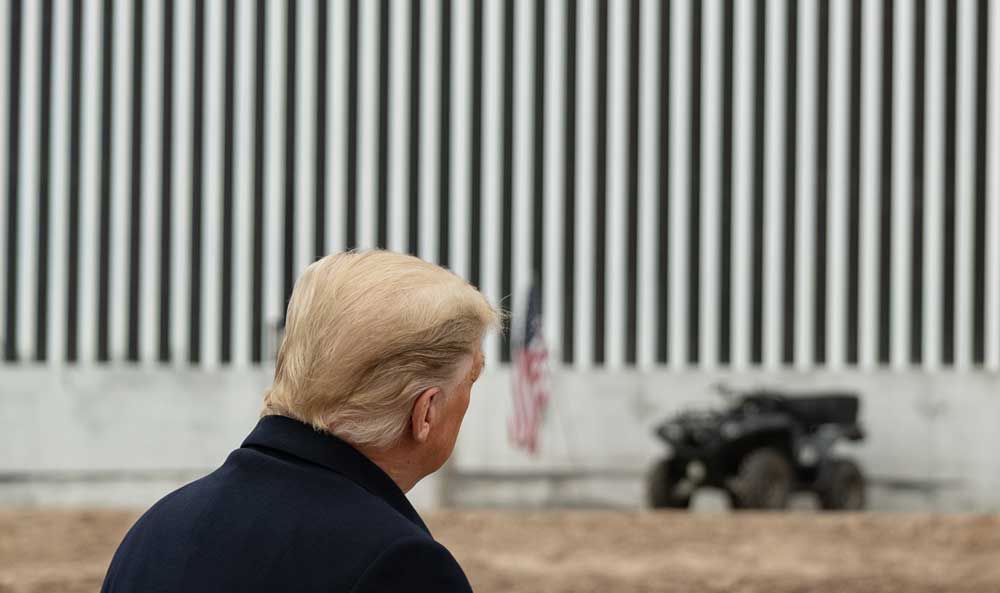
Florida Gov. Ron DeSantis on June 7 suggested on X that former President Donald Trump is still eligible to vote in Florida, his home state, even though he is now a convicted felon 34 times over. DeSantis is correct, though not necessarily for all the reason he stated on X.
“Former President Donald Trump hasn’t lost his voting rights in Florida. Rights are not removed in Florida where they haven’t yet been stripped in the convicting jurisdiction,” he wrote accurately. The rest of his statement was not relevant or, in part, accurate (an allusion to Florida’s Clemency Board was more bombastic than applicable.)
When we asked Flagler County Supervisor of Elections Kaiti Lenhart whether Floridians convicted of one or more felonies in another state are eligible to vote in Florida, she referred us to the Division of Elections’ page that lays out the standards of Amendment 4 (see below).
For felons convicted in another state, the prohibition to vote in Florida applies only if the state where the felon was convicted prohibits the felon from voting after being released. In other words, Florida follows the other state’s rules in so far as felon voting rights are concerned. Florida was one of just four states disallowing felons released from prison from voting until 65 percent of Floridians approved Amendment 4 in 2018, requiring the restoration of felons’ voting rights upon release. The Florida Legislature, with Flagler County’s Rep. Paul Renner leading the charge, emasculated the amendment by passing a law requiring felons to pay all their court costs, fines and restitution before regaining their right to vote.
Despite the numerous legal liabilities Trump continues to incur beyond his felony conviction, including a civil trial that found him liable for raping a woman, to whom he owes $5 million, Florida’s poll-tax-like barrier to restoration does not apply in New York, which, like most other states, restores felons’ voting rights upon release. In a couple of cases (Vermont and Maine) felons can vote even while in prison. In New York, felons who are not in jail or prison may vote even if they are on parole or probation, or had their prison sentence suspended.
In sum, Donald Trump would be eligible to vote as of today, assuming he is not jailed at his July sentencing. A New York jury found him guilty on 34 felonies on May 31 following a trial on charges stemming from what the Associated Press described as “a scheme to illegally influence the 2016 election through a hush money payment to a porn actor who said the two had sex.” Trump is scheduled for sentencing by New York County Supreme Court Justice Juan Manuel Merchan on July 16.
Even if Trump were jailed in New York, he could become eligible to vote again as soon as he is released, if the jail sentence does not overlap with Election Day.
![]()
AMENDMENT 4: STANDARDS GOVERNING ELIGIBILITY TO VOTE AFTER A FELONY CONVICTION
What laws govern eligibility for restoring voting rights?
The eligibility requirements to restore voting rights are found in the Florida Constitution and Florida Statutes. See specifically, section 4, Article VI, Fla. Const., and section 98.0751, Fla. Stat.
What standards govern eligibility to vote after a felony conviction?
- A felony conviction in Florida for murder or a sexual offense makes a person ineligible to vote in Florida unless and until the person’s right to vote is restored by the State Clemency Board.
- For any other felony conviction in Florida, a person is eligible to register and vote if the person has completed all terms of his or her sentence. Completion of the sentence means:
o Prison or jail time;
o Parole, probation, or other forms of supervision; and
o Payment of the total amount of all fines, fees, costs, and restitution ordered as part of the felony sentence.
Note: Such person may alternatively apply to have his or her right to vote restored by the State Clemency Board.
- A felony conviction in another state makes a person ineligible to vote in Florida only if the conviction would make the person ineligible to vote in the state where the person was convicted.
- An offense on which a person was not adjudicated guilty does not make a person ineligible to vote.
- A misdemeanor conviction does not make a person ineligible to vote.
More information here.










